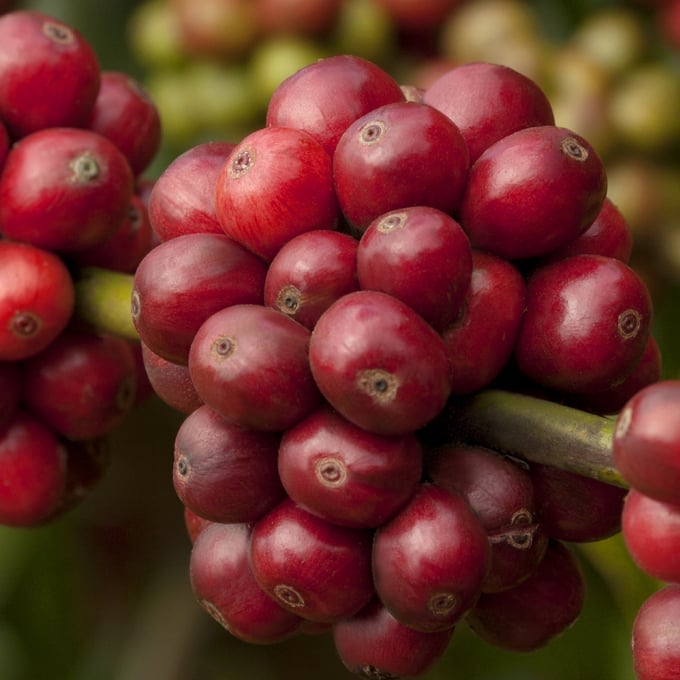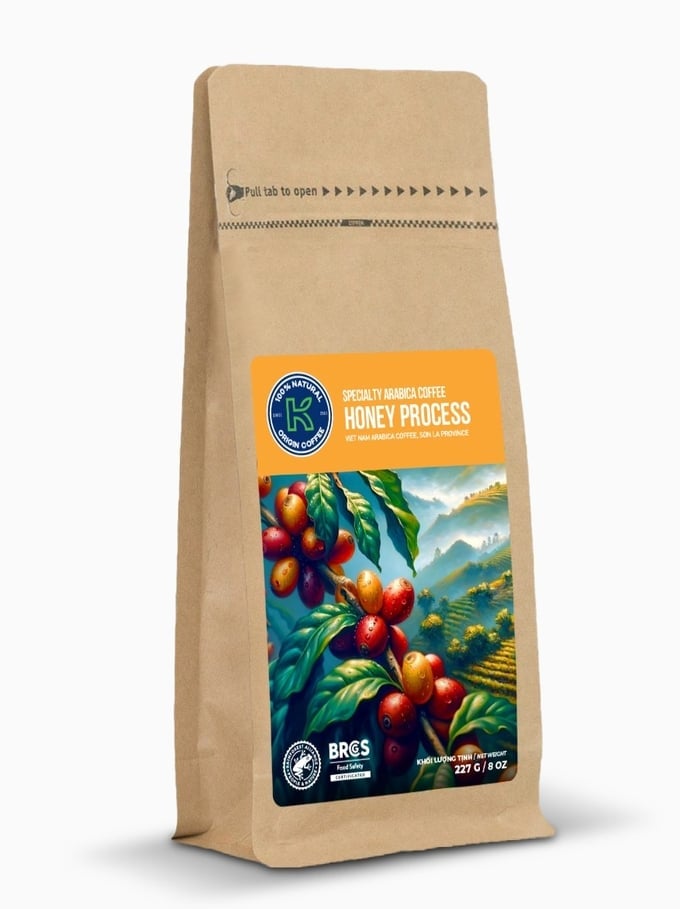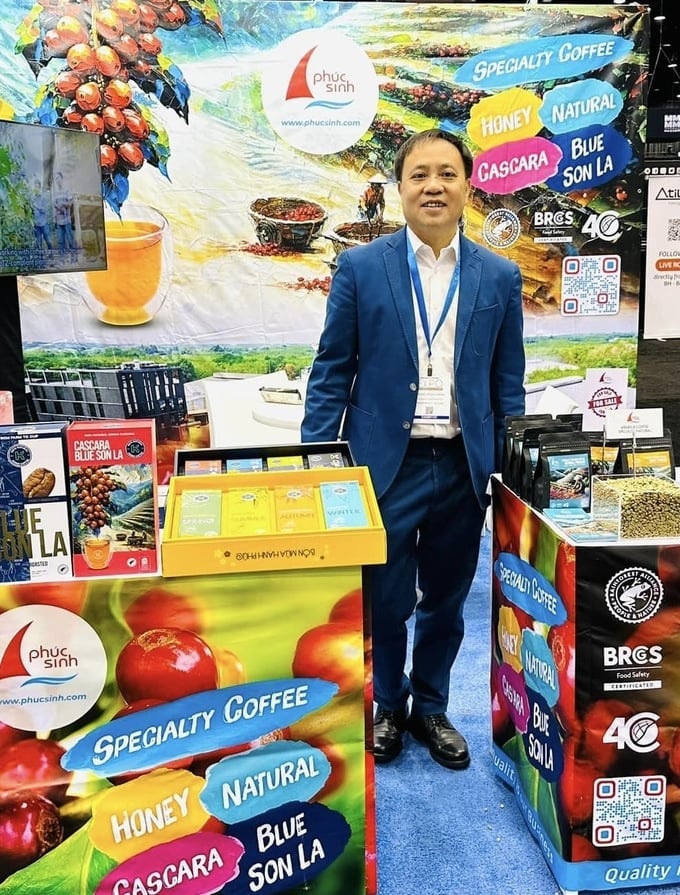November 28, 2025 | 04:53 GMT +7
November 28, 2025 | 04:53 GMT +7
Hotline: 0913.378.918
November 28, 2025 | 04:53 GMT +7
Hotline: 0913.378.918

Arabica coffee beans harvested from Son La province.
As a reputable exporter of agricultural products, Phuc Sinh Group advocates for the establishment of agricultural raw material areas in Vietnam. After extensive research and investment, Phuc Sinh Group has established the Phuc Sinh Son La factory to directly support farmers in Son La province in producing and harvesting Arabica coffee.
Building on the success of the Specialty Coffee Blue Son La product, Phuc Sinh Group continues to introduce two specialty products made from Northwest Arabica coffee beans to the market: Honey Process Coffee and Natural Process Specialty Coffee.
Mr. Phan Minh Thong, General Director of Phuc Sinh Group, shared: "With a passion for Son La Arabica coffee, I am determined to bring this premium coffee variety to both domestic and international consumers, despite the difficulties and challenges ahead."

Honey Process Specialty Coffee.
Honey Process Specialty Coffee and Natural Process Specialty Coffee have been designated as as specialty coffee products based on several criteria. Specialty coffee product is defined as a coffee variety or coffee experience recognized for its unique characteristics. These may include flavor profile, acidity, sweetness, balance, and cleanliness. Accordingly, when coffee products exhibit these special characteristics, they inherently hold considerable added value within the market.
The challenge for coffee processors lies in researching and understanding the unique characteristics of coffee beans from different geographical regions; and subsequently processing them using suitable methods to enhance the beans' positive qualities. More importantly, only fully ripe coffee cherries can be selected during the harvesting stage, as a small number of mixed in unripe cherries can spoil an entire batch during processing. Specialty coffee processing requires precision, considerable effort, and greater time investment compared to standard practices.
Due to the manual processing approach, production output is relatively limited. Throughout the processing period, which typically spans from 10 to 30 days, coffee processors must engage in round-the-clock monitoring as a quality control measure.
Specialty coffee products from different regions feature unique and distinct characteristics, which are not easily replicated. Son La coffee, for instance, feature a unique flavor profile, differing considerably from coffee produced in Cau Dat, Quang Tri, or even the neighboring province of Dien Bien. Dry coffee processing can result in a variety of aromas, including tropical fruit, mango or chocolate. Conversely, the same coffee variety can produce notes of honey, lime, caramel, and a sweet aftertaste with the honey coffee processing method.

Mr. Phan Minh Thong, General Director of Phuc Sinh Group, takes great pride in the company's specialty coffee line.
The production and trading of specialty coffee products pose significant challenges for both producers and retailers alike. Mr. Phan Minh Thong acknowledged this challenge: "The pursuit of specialty coffee products requires affection, resilience, and a touch of luck. We have faced extreme difficulties and challenges at times, but we have overcome these obstacles to bring exceptional quality coffee beans to consumers in Vietnam and around the globe."
Translated by Nguyen Hai Long
/2025/11/27/3830-1-152901_403.jpg)
(VAN) Dong Nai is developing its key crop areas, expanding planting area codes, and applying high technology to increase the value of agricultural products, aiming at a green and sustainable agriculture.

(VAN) Tay Ninh’s livestock sector is undergoing a major transformation, applying high-tech, closed-loop circular models to build sustainable value chains.
/2025/11/26/3627-4-082628_818.jpg)
(VAN) From a small café on the red basalt highlands, Le Van Hoang started a business with clean coffee, building Enjoi Coffee into a symbol of organic agriculture in the Lam Dong plateau.
/2025/11/25/0045-1-135246_13.jpg)
(VAN) Ca Mau is researching a model of sea-encroaching embankments combined with viaducts and logistics service zones, aiming both to prevent erosion and create land funds for marine economic development.

(VAN) The information was shared at the seminar 'Urban Agriculture - Solutions for Developing Green Spaces,' organized by the Kinh te & Do thi Newspaper and the Biotechnology Center of Ho Chi Minh City.
/2025/11/19/4141-2-132831_216.jpg)
(VAN) One of Japfa's outstanding solutions is implementing digital transformation and artificial intelligence (AI) to optimize operations, enhance productivity, and advance sustainable development.
/2025/11/19/4847-1-093540_448.jpg)
(VAN) The Gia Lai Provincial People’s Committee had a working session with the delegation of the U.S. Department of Agriculture, the State of Idaho, and representatives of the State's leading enterprises.